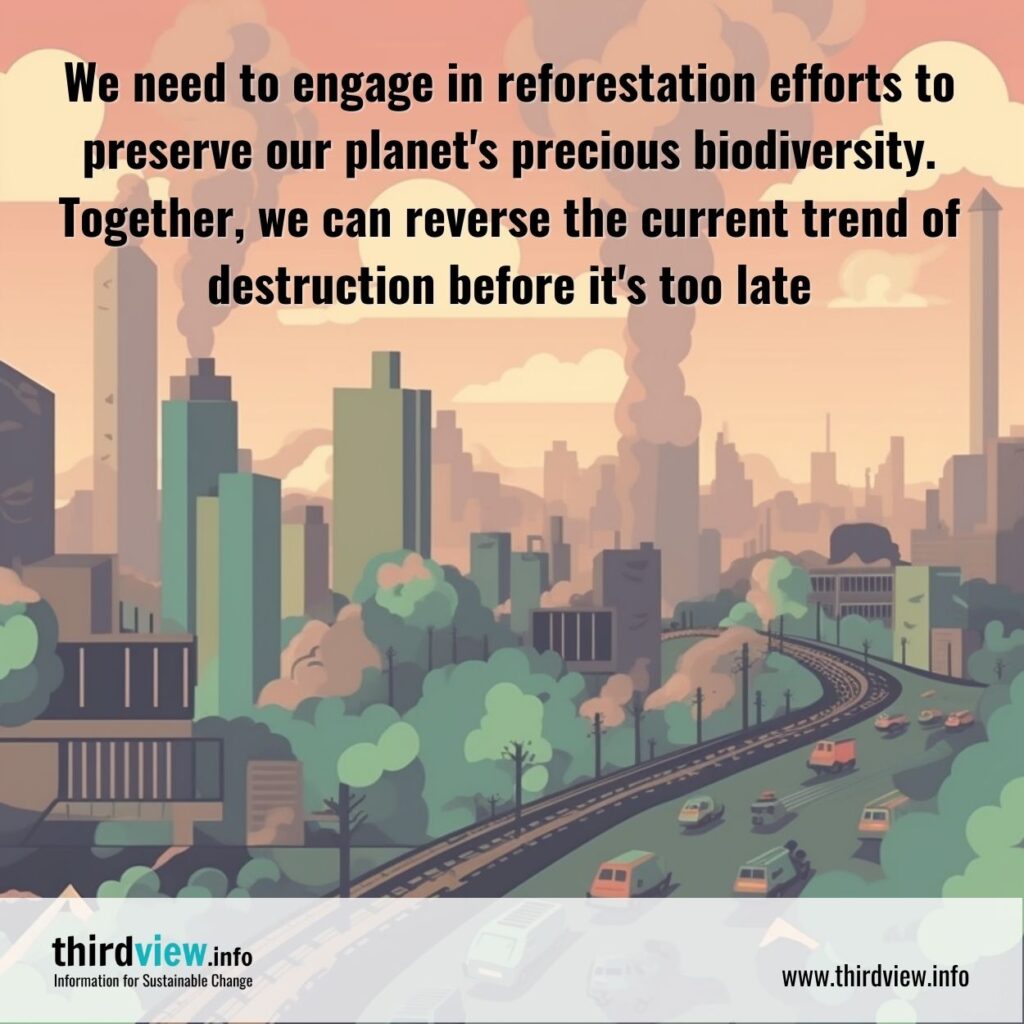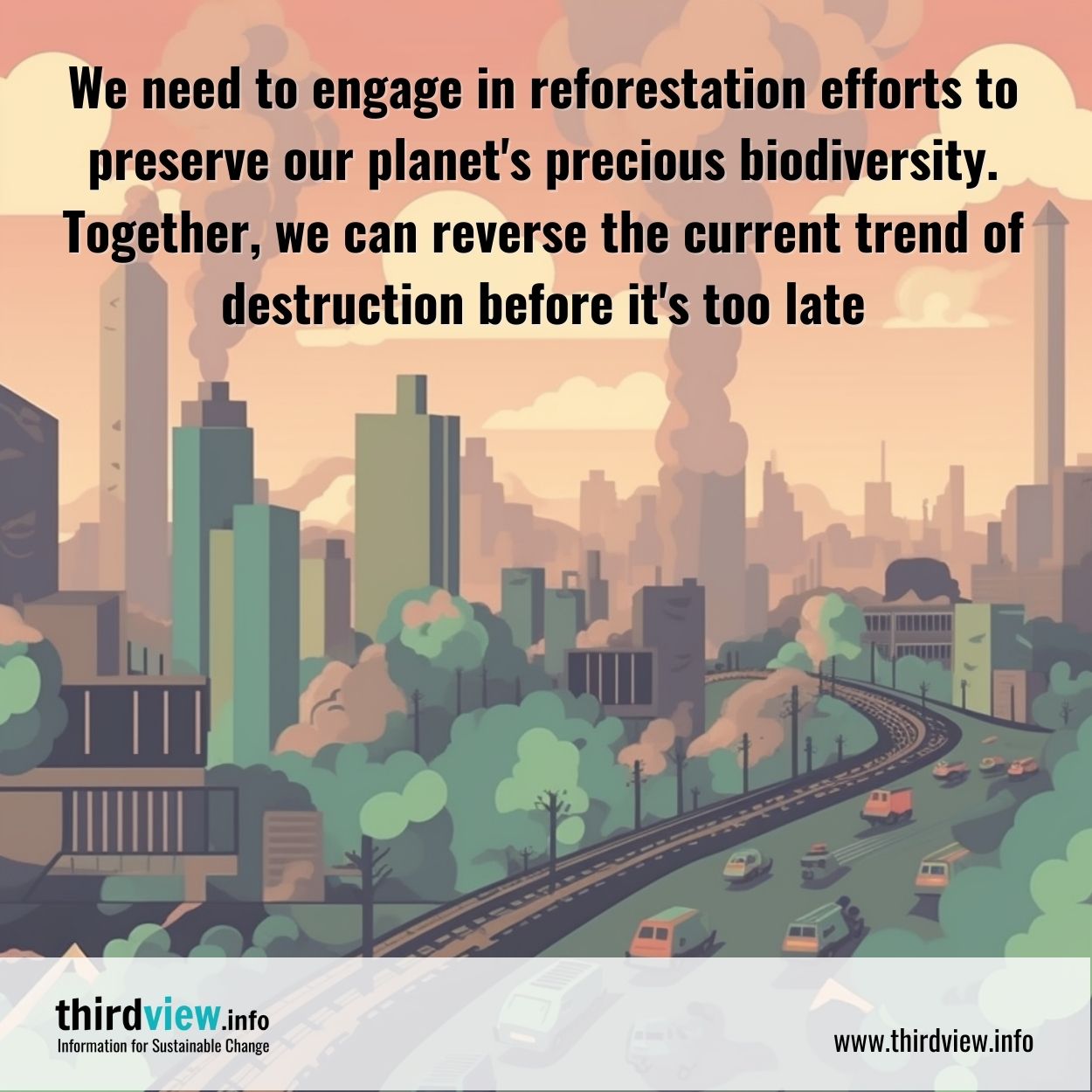Biodiversity loss is one of the most pressing issues facing our planet today. We live on a finite planet, and as human populations continue to grow, our impact on the environment grows with us. The destruction of habitats, climate change, pollution, and overexploitation of resources—all these factors contribute to biodiversity loss around the world. But what role do humans play in this process? What can we do to help protect and restore vital ecosystems? Let’s take a closer look at how humans are contributing to biodiversity loss and what we can do about it.
Deforestation
One of the main ways that humans are contributing to biodiversity loss is through deforestation. Deforestation has been an issue since ancient times, but in recent decades it has become an even more pressing problem due to population growth, urbanization, expansion of agricultural land and logging activities. Deforestation destroys habitats for many plants and animals that rely on forests for their survival. It also increases global warming by releasing carbon dioxide into the atmosphere and disrupting water cycles. In order to reduce deforestation, we must focus on sustainable forestry practices such as reforestation and agroforestry.
Carbon Emissions
Another major contributor to biodiversity loss is carbon emissions from burning fossil fuels such as coal and oil. These emissions trap heat in the atmosphere which leads to climate change—which in turn has a huge effect on ecosystems around the world. To combat this problem we must move away from reliance on fossil fuels towards renewable energy sources such as solar, wind or hydroelectric power. We must also reduce consumption by using energy-efficient appliances and utilizing public transportation whenever possible.
Pollution
Human activity is also causing great harm through pollution of air, land, water bodies, soil etc. Pollutants such as heavy metals can cause irreparable damage to plants and animals by poisoning them directly or by reducing their food supply through eutrophication (over-fertilization). To reduce pollution, we need better waste management practices such as reducing plastic use or composting organic wastes instead of throwing them away into rivers or landfills where they can leach into groundwater supplies or be blown into waterways when dry. We must also work towards cleaning up existing pollutants with technologies like phytoremediation (using plants to absorb pollutants) or bioremediation (using bacteria).
Biodiversity loss is a complex global problem that requires immediate action if we are going to avert disaster for our planet’s ecosystems. Humans have played a large role in this process through deforestation, carbon emissions and pollution but there are steps each one of us can take right now to help restore balance back to nature. Investing in renewable energy sources over fossil fuels; reducing consumption; practising sustainable forestry; implementing better waste management practices; utilizing phytoremediation/bioremediation technologies; engaging in reforestation efforts – these are just some small examples of how individuals can make a difference when it comes to preserving our planet’s precious biodiversity. Together we can reverse the current trend of destruction before it’s too late.


